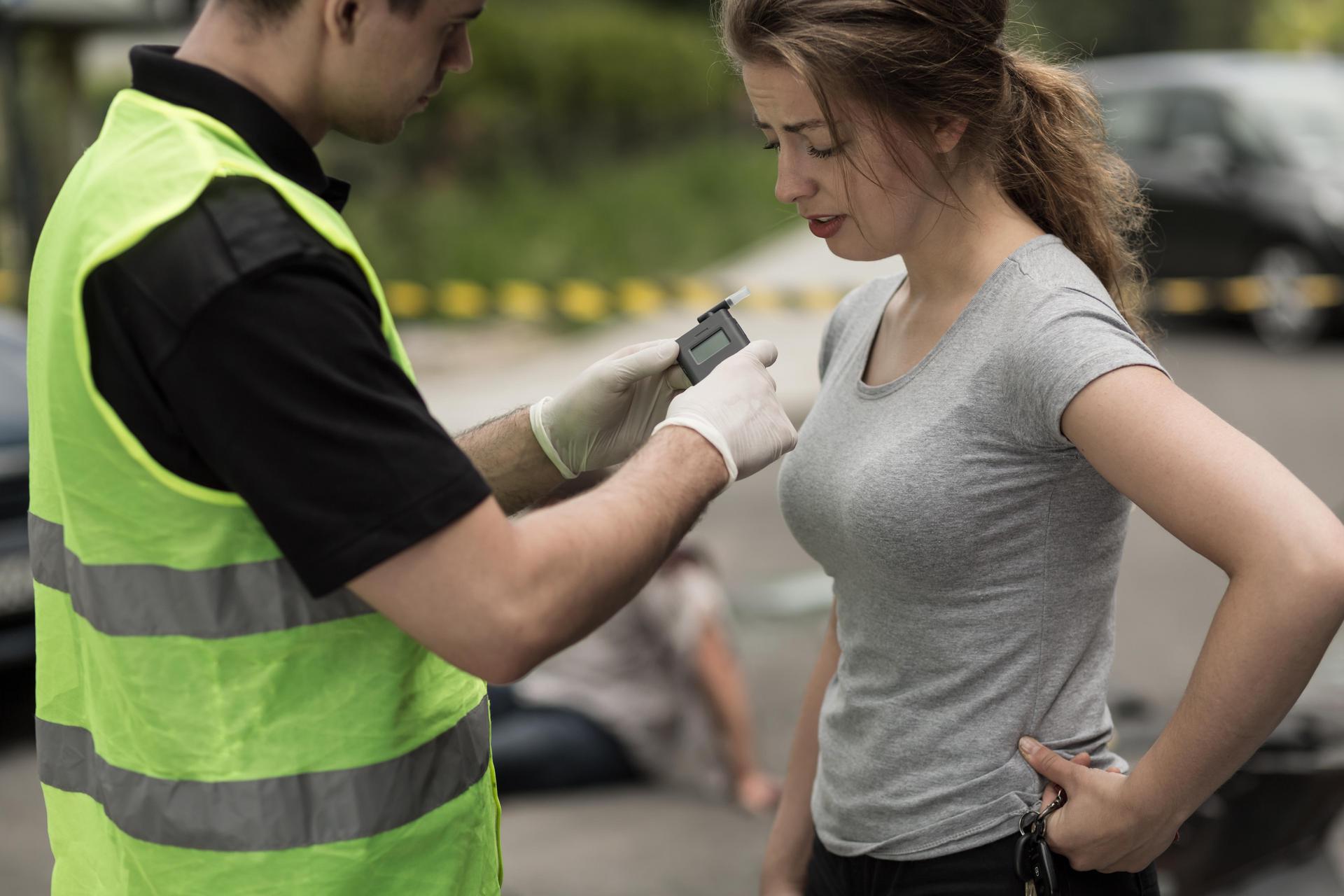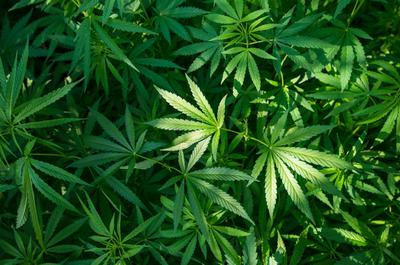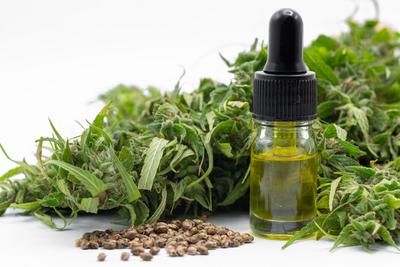Breathalyzer for THC - Why the Weedalyzer Does Not Work
If THC is being treated like Alcohol by the law, why do drug tests still treat it as entirely illegal? Because there is no Weedalyzer. Find out why not.

Unless you've been asleep for a decade, you are well aware that medical marijuana has been legalized in more than half of the states in the USA. Recreational marijuana is fully legal in several states. As the number of people who live in a place where THC is legal continues to rise, so does the concern over how to respect people's right to legally consume weed in its various formulations, but also to be able to know when someone is impaired when performing safety sensitive functions. Even the most ardent backer of marijauna legalization would not want a driver of their children's schoolbus to be high on the job.
This raises an obvious question: if we are going to treat marijuana like alcohol in terms of the law, shouldn't we also treat marijuana like alcohol in terms of drug testing? A quick review:
Here's where we get to the jist of the problem, and an obvious solution. It makes perfect sense, now that THC is "just like alcohol" in many states, to test for it in the same way that we test for alcohol. In other words, we should take THC out of the urine drug test and utilize a breathalyzer for weed, or a "weedalyzer". However, can a weedalyzer really know whether or not an individual is high - and exactly how high they are - in the present moment?
Where Current THC Tests Fall Short
Unlike alcohol and drunkenness, which can be measured by the amount of the actual alcohol in an individual's bloodstream, there is no comparable solution yet for determining if an individual is presently high or under the influence of marijuana. Even then, delta-9-tetrahydrocannabinol (i.e., "THC", which is the psychoactive ingredient that produces marijuana's "high") can remain in an individual's urine and hair for weeks after sobriety has fully returned.
A drug test can determine whether or not an individual has used marijuana somewhat recently, but does not adequately distinguish between, say, smoking last night versus smoking last hour. Considering impairment typically wears off after a few hours, employers and law enforcement officials that recognize the shortcomings of relying on a urine drug test for marijuana have no choice but to turn to even more antiquated, inconsistent and imprecise methods. You probably know what I'm talking about: real diagnostical treasures like looking for bloodshot eyes, slurred speech, and delayed reaction time.
The Critical Need for Marijuana Breathalyzers
Drug tests for marijuana are still permitted, of course, and employers can terminate employees who test positive, regardless of local recreational or medical marijuana laws -- even if that employee used marijuana days or even weeks prior, on their own time! Imagine this: you live in a state where THC is completely legal to use recreationally, and you smoke it at home one night. The next day, you go to work COMPLETELY SOBER, your employer tests you, and then fires you from your job for a positive result. And you say to yourself, "Is an employer even allowed to KNOW if I legally used a legal substance as a legal adult on my own time?" The answer, of course, is yes. And they can fire you for it, and there is nothing you can do about it.
Job seekers should not expect the laws of their state to protect them from being turned down for a position after testing positive for marijuana use. Some companies that still want to perform drug testing but recognize the inconsistencies and inefficacies of the current legal environment surrounding marijuana drug testing laws have responded to this concern by choosing to administer drug tests that exclude weed. But this doesn't fully solve the problem, either, since removing THC from drug testing altogether is akin to removing alcohol and saying that staff can come to work under the influence.
There has got to be a better way! Hey, why not a weedalyzer? While a market certainly exists for a "weedalyzer," engineers have not yet devised one that actually works. A major part of the problem is quantifying the current body's level of retained marijuana or it's metabolites and relating that to impairment in the same way that BAC does it for alcohol. In other words, there is no concrete way to associate how high a person might be with the amount of THC in their bloodstream.
That's not to say people aren't trying. Many researchers are supposedly closing in on a device that will determine if an individual is currently under the influence of marijuana, but its commercial availability for employers, employees, job-seekers, law enforcement officials and the general public alike is sure to be delayed by years of legal wrangling about what constitutes impairment. And until that gets resolved, employers would be loathe to using a test that can't stand up in court, lest they get sued for inappropriate terminations.
Blood-to-Breath: Why do Breathalyzers Work for Alcohol?
As implied by Henry's Law, the amount of alcohol in a person's bloodstream can be quantified at any given moment using the "partition ratio" for quantifying the concentration of a compound dissolved in a liquid. Applied to the human body, the partition ratio gives credibility to the quantification of the concentration of alcohol in an individual's bloodstream by measuring how much is present in their breath. Alcohol is absorbed by the human body, typically within the stomach, and is dissolved in blood before undergoing a transfer to the lungs. Henry's Law allows breath alcohol device makers to scientifically assert that the amount of alcohol in the breath is the same as the amount of alcohol in the blood. And, BAC works as an accepted measure in the real world because the law upholds the notion of quantifiable sobriety (for example, below .020 for truck drivers, or below 0.80 for drunk driving in some states).
A Weedalyzer is in the Works...Supposedly
Researchers at the University of Pittsburgh are fine-tuning a device that can quantify THC in the body by measuring how much is present on the breath. This is accomplished using carbon nanotubes that are approximately 1/100,000 the size of a human hair. The nanotubes being tested in the device work by capturing THC molecules that have been emitted from a user's breath. The molecules then change the electrical makeup of the nanotubes, signaling the presence of THC. The technology is designed so that results are not obstructed by the presence of other substances on a person's breath, such as alcohol.
However, researchers still have a limited understanding when it comes to using the level of THC in a person's blood to determine how high they are, and state laws determining a legal limit for THC vary across the country. Colorado has determined a THC count of 5 nanograms per milliliter is enough to be under the influence, but unlike the BAC equivalent of 0.08, the THC count is only considered "permissible inference" that a person is impaired.
The Nuances of THC Impairment
Directly associating BAC with a THC count produced by the prototypical weedalyzer is further complicated by the varied ways people can consume marijuana. Whereas alcohol consumption is relatively straightforward, marijuana can impact impairment differently depending on how it's been consumed and in what form.
There are generally three ways to ingest and activate THC: smoking, vaping and oral consumption, with each of these methods having a distinct impact on impairment. While smoking or vaping cause rapid impairment and subsequently, rapid dissipation of THC's effects, oral consumption is slow to impair, can be far more potent, and typically takes much longer to taper off than it's heat-activated (smoking/vaping) counterparts.
Until researchers are able to hone in on a technology for a legally sound weedalyzer and firm up a scientific correlation between THC and impairment levels for policymakers to get behind, hair drug testing and urine drug tests will remain the best and most common practice for detecting marijuana use.
The enigmatical and magical weedalyzer is a dream device for many reasons, and it will no doubt confer riches upon it's inventor and investors. However, as of this writing, it does not exist.





